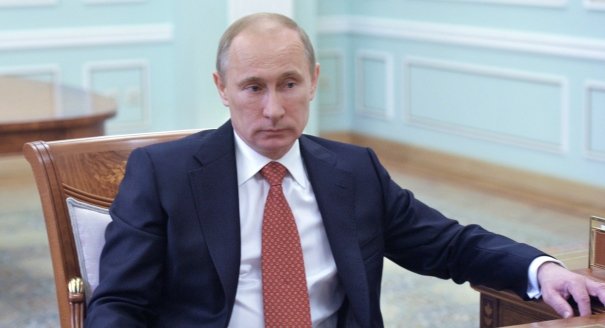A generation ago, Vladimir Putin would have been a strongly patriotic Soviet leader. Obviously he is too late for that (22 years too late if we date the demise of the Soviet Union to August 19, 1991).
Now Putin has to be modest in his efforts to "re-gather" the former Soviet republics. The Customs Union is one such project. Promoting the Russian language is another.
It was striking how, on the Russian president's recent visit to Baku, he made only a passing reference to the Nagorny Karabakh conflict in his public exchange with President Aliev but was keen to talk about the status of the Russian language in Azerbaijan.
Putin said that in their bilateral talks they had given "due attention" to the issue of maintaining the Russian language in Azerbaijan and he was pleased by the way Russian teaching was being promoted.
He was being too rosy in his assessment. The Baku-born Azerbaijani elite, from the president and his wife downwards, is still more Russian-speaking than Azeri-speaking. But the government has radically trimmed the two biggest sources promoting the Russian language: rebroadcasting of Russian television channels and Russian schools.
In Georgia the decline of Russian has been even more dramatic. The previous government promoted English as the country's second language and Russian has all but disappeared from public view.
This is regrettable. Russian is not just the language of Russia, but also the lingua franca of communication for the region, both present and future. (How else can Georgians talk to Abkhaz and Ossetians?)
The Russian language's hold in the Caucasus was always more precarious than Putin would guess. In Soviet times it never elbowed out native languages as it did in places as Kazakhstan or Moldova. Polling data from the Caucasus Research and Resources Center from 2011 tells us that in 2011 the number of Armenians with only "beginner's" or "no basic knowledge of" Russian was 18 percent, of Georgians 25 percent, and of Azerbaijanis a striking 59 percent. (In Baku the number was 44 percent).
The time to shore up the Russian language was the 1990s when Russia was much wealthier than its southern neighbors and could have usefully deployed "soft power"—but did nothing of the kind.
One anecdote sums up this great missed opportunity. The former director of the National Library in Tbilisi Levan Berdzenishvili once told me that in those years his desperately underfunded library received book donations from all the embassies in town, except one: the Embassy of Russia.
